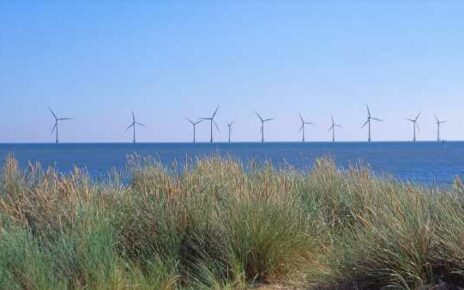Save articles for later
Add articles to your saved list and come back to them any time.
Bali: With a fire burning stubbornly at Bali’s giant Suwung landfill for the past week, spewing putrid smoke into the sky above the Island of the Gods, the mayor of Denpasar raised a novel idea.
Authorities had deployed water-bombing helicopters and even police water cannons in a futile attempt to douse the smouldering underbelly of the 32-hectare dump, where rubbish is piled as high as 25 metres.
Hundreds of firefighters, police and soldiers have worked to try to extinguish the fire at the mountain of rubbish – so far unsuccessfully.Credit: Amilia Rosa
So, in a country where belief in the spiritual domain remains strong, the mayor of Bali’s charming, chaotic capital proposed a competition.
Anyone who could make it rain would win a return flight to Singapore paid from his own pocket, I Gusti Ngurah Jaya Negara told local reporters in Denpasar.
Rain shamans are commonly employed in Indonesia to prevent wet weather spoiling events like weddings and sporting contests, but this was different. They were being called on to open the heavens.
It begged some questions: How would this competition work? Would the weather whisperers be brought to the site one day after the other?
And if it did then rain, and the fire at the tip was extinguished, how would it be determined who had brought it on? Who would score the free trip?
Unfortunately, we won’t have the opportunity to find out. After his supposed plan made the news in Bali, the mayor insisted to this masthead that his tongue had been planted in his cheek.
“I was joking about the contest,” Negara said.
Instead, local government officials will turn to science to finally bring the fire under control, as it continues to burn beneath a mountain of rubbish near the popular tourist area of Sanur on the island’s south-east coast.
Negara said Bali had asked Indonesia’s national disaster response agency to use weather modification technology – or cloud seeding – to artificially induce much-needed rain over the area.
“Because the technology is there [in Jakarta], it will be assessed whether it can be used in Bali or not. There needs to be a certain level of water [dew] in the air before the technology can be applied,” he said.
Deteriorating air quality is a periodical occurrence in Indonesia during dry periods, but it’s usually a result of forest and peat fires.
Late last month, as smog enveloped parts of neighbouring Malaysia and briefly Singapore, it was the subject of a minor diplomatic wrangle.
Panca Desti Hartami and her children can see the fire from their home.Credit: Amilia Rosa
The Malaysian government blamed haze from Indonesian Sumatra and Borneo for clogging the skyline in some cities over the border – a claim refuted by Jakarta.
While smoke from fire has drifted through Bali holidaying hotspots like Kuta and Seminyak in the past week, officials on the island maintain it’s had no impact on the tourist trade that is finally booming again after the pandemic.
Australian visitors to Bali have passed the 1 million mark for the year this month.
“We have not received complaints from tourists about the fire,” Denpasar’s Deputy Mayor Kadek Agus Arya Wibawa said.
A fire at the huge Suwung landfill in Bali has proved difficult to conquer.Credit: Amilia Rosa
“Sanur Beach is the closest tourist destination, but since the wind is blowing in a different direction, it was not affected. The air quality is bad within 500 metres of the fire.”
Even so, as hundreds of firefighters, police and military personnel work to extinguish it, life has become more uncomfortable for those nearby.
Australian expatriates have helped out, delivering face masks for children at a school close to the landfill.
Sixty squatters who make a living by picking rubbish from landfill have been asked to leave the site and return to their home villages, which are mostly on the neighbouring island of Java. Others simply have to wait it out.
“We live so close to the dump, a couple of hundred metres [away] maybe,” said 43-year-old Panca Desti Hartami. “I am a housewife and … we raise pigs. When the fire started, we could see it from our house.
“Now it’s just smoke. It comes and goes with the wind. I have four children, the youngest is three and they are all OK. We couldn’t exactly evacuate, where would we go? Who is going to care for the pigs?”
Deteriorating air quality is a periodical occurrence in Indonesia during dry periods.Credit: Amilia Rosa
Get a note directly from our foreign correspondents on what’s making headlines around the world. Sign up for our weekly What in the World newsletter.
Most Viewed in World
From our partners
Source: Read Full Article






